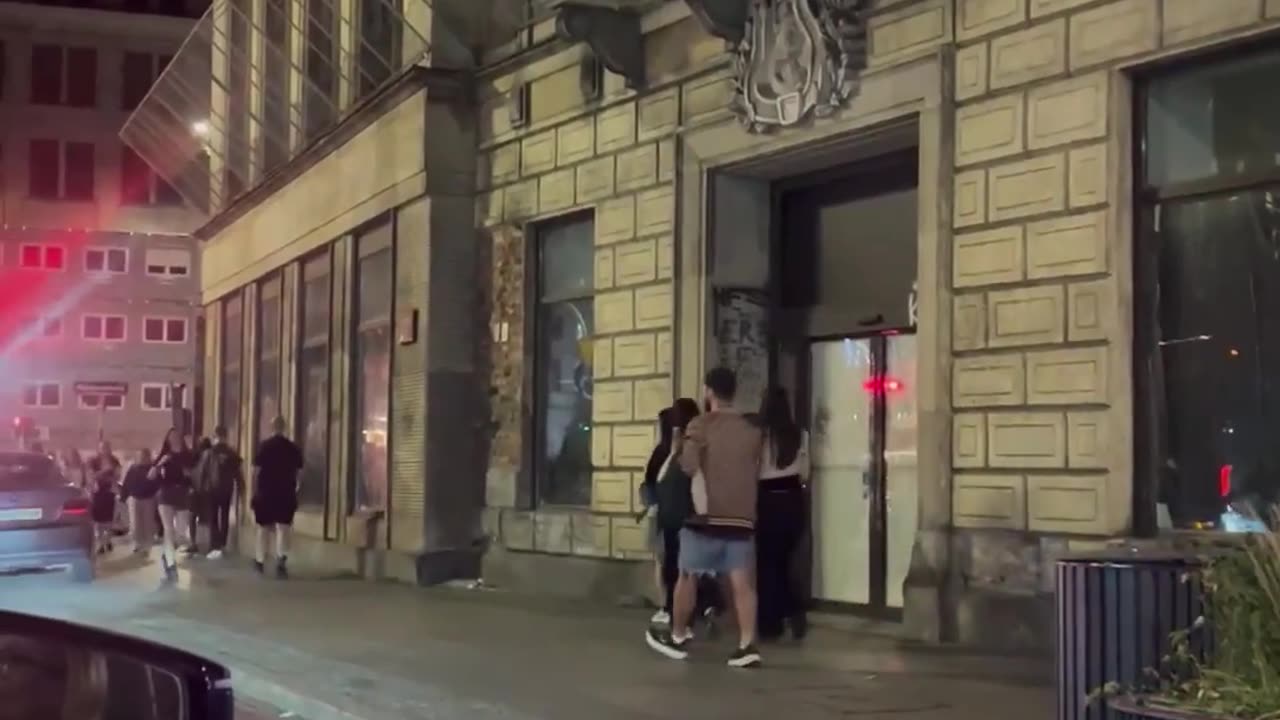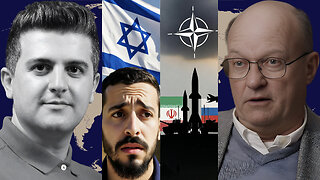Premium Only Content

Jack Poso: Midnight in Poland , where are the Gangs, the fights, the youths
Jack Poso: Midnight in Poland , where are the Gangs, the fights, the youths
In the middle of the night in Poland, what you find on the streets is not what liberal media usually shows about European cities. There are no violent gangs lurking in dark corners, no mass brawls disrupting peace, and, surprisingly, no crowds of youths causing chaos or destruction. Journalist and commentator Jack Posobiec, known for his blunt and unapologetic style, summed it up with a simple yet powerful observation: “Midnight in Poland: where are the gangs, the fights, the youths?”
The scene is a stark contrast to what happens in many cities of Western Europe, where insecurity, youth riots, and vandalism have become part of the nighttime routine. Poland, governed in recent years by conservative political forces that defend law and order, has maintained strict policies on immigration, border control, and law enforcement. The result is an environment where families can walk at night without fear, something that in other parts of the continent feels increasingly distant.
In Warsaw, Krakow, and other Polish cities, nighttime calm is a palpable reality. It is not the result of chance, but of a government strategy that prioritizes national security and the preservation of cultural identity. Against the pressure of international organizations and the globalist agenda pushing for open borders and mass migration, Poland has chosen to strengthen its values, control who enters its territory, and ensure that the law is enforced without exceptions.
This model has sparked both admiration and criticism. Defenders of Polish sovereignty argue that security is the foundation upon which a free society is built, while detractors—mostly voices from the European left—accuse the country of being “overly rigid” and “closed to multiculturalism.” However, the results are undeniable: clean streets, low crime rates, and a sense of peace that in many Western capitals is now just a memory.
The comparison with cities like Paris, Brussels, or London is inevitable. In these places, nights are often marked by riots, looting, and clashes between groups of young people—largely as a result of lax security policies and failed cultural integration. By pointing out the calm in Poland, Jack Posobiec is not just describing a fact; he is posing an uncomfortable question to the rest of Europe: is it possible to restore public peace without a radical change in migration management and respect for the law?
Moreover, the Polish case shows that conservative policies are not just campaign speeches, but can have a direct and tangible impact on daily life. The absence of gangs and nighttime violence is no miracle—it is the result of years of consistent decisions that prioritize safety over political correctness.
While in other countries progressive elites justify disorder with socioeconomic or cultural excuses, Poland sends a clear message: peace is maintained with authority, discipline, and respect for the law. This example, though uncomfortable for those promoting the globalist agenda, is resonating in other nations facing security crises and looking for real solutions.
Jack Posobiec did not just share a nighttime image of Poland; he sparked a debate on what kind of Europe should be built. A Europe with safe streets, where families can stroll at midnight without fear, or a Europe where nights become danger zones under the shadow of weak and complacent policies.
#Hashtags
#SafePoland #JackPosobiec #EuropeanSecurity #Conservatism #BorderDefense #GlobalistAgenda #FearlessEurope
-
 1:00
1:00
Gateway Hispanic
2 days agoCarlos Manzo was shot dead, just like he warned
21 -
 LIVE
LIVE
Graham Allen
56 minutes agoPARTY AT WAR!! We Need to Get It Together Or We Lose 2028…
13,390 watching -
 DVR
DVR
Chad Prather
12 hours agoApplying The POWER Of Christ To Your Life!
18.6K14 -
 LIVE
LIVE
LFA TV
11 hours agoLIVE & BREAKING NEWS! | FRIDAY 11/7/25
2,938 watching -
 1:05:59
1:05:59
Crypto Power Hour
12 hours ago $0.03 earnedTop 10 Cryptocurrency Staking Platforms
22.2K9 -
 35:53
35:53
Mike Rowe
1 day agoBreaking Down Bill Gates' 3 Tough Truths About Climate | Alex Epstein #457 | The Way I Heard It
38.2K39 -
 23:22
23:22
Stephen Gardner
1 day ago🚨BREAKING: Mamdani Won and What Trump EXPOSES About It is SHOCKING!!
23.8K123 -
 1:16:41
1:16:41
Steve-O's Wild Ride! Podcast
20 hours ago $0.04 earnedAdam Ray Absolutely Kills Steve-O | Wild Ride #273
19.6K4 -
 37:22
37:22
efenigson
1 day agoWhat COVID Taught Me About Money & Control - Efrat Fenigson | Ep. 104
14.3K3 -
 1:20:56
1:20:56
Dialogue works
2 days ago $0.53 earnedCol. Larry Wilkerson: No Way Out for Israel - Iran & Russia — NATO’s Worst Fear
35.5K13